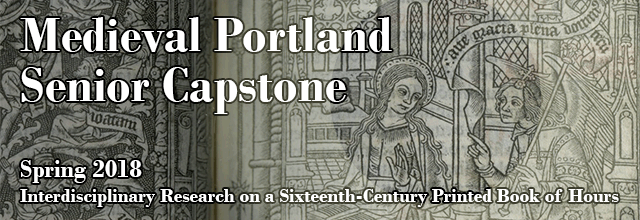Files
Download Full Text (375 KB)
Description
The Danse Macabre (the Dance of Death) is a 15th-century conceit, both pictorial and textual, of the humbling power of death. In the years following the plagues of late 14th-century Europe, it seems almost inevitable that the Danse Macabre would become a popular theme in medieval art. The Danse Macabre in Thielman Kerver’s printed Book of Hours (1507) is depicted in a series of marginal illustrations in which Death, pictured as a decomposing corpse or transi, accompanies 66 “dancers” to the afterlife. Medieval artists and their patrons could subvert attitudes toward certain figures of power by including their images in the Danse and positioning them in relation to Death and to one another.
Publication Date
2018
Subjects
Book and manuscript illustration, engraving, Medieval Christian art and symbolism
Disciplines
History of Religion | Medieval History | Medieval Studies
Persistent Identifier
https://archives.pdx.edu/ds/psu/31080
Recommended Citation
Paparo, Stefano, "10, Danse Macabre" (2018). Kerver Book of Hours: 2018 Senior Capstone. 7.
https://archives.pdx.edu/ds/psu/31080



